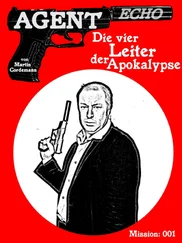I caught a glimpse of Spalding later, leaving the hotel between two of Mick’s men. And his lip was cut and his face was swollen and carried contusions. But they were healing already. A half-smile played under the congealing gash on his upper lip.
I’d easier have beaten Lucifer himself, Mick said, helping himself to a brandy from the bottle Boland had fetched. Maybe I should just have him shot, he said.
You’ll shoot no one on my account, I said.
Cause a stink with the rest of the Yanks, Boland said.
The rest of them are decent men, Mick said.
You will shoot no one on my account, I repeated.
Then we’ll have that scum on the first boat out of Dublin. Boland here will make the call. Mick put down his glass and came over to me. I still wore his coat, the smell of him on the collar a comfort as I tried to stop trembling. He smiled and stroked my cheek. The touch of his sore hand was infinitely tender.
And that was the end of it. And I did not really think about Harry Spalding again. I did not think about him until his boat struggled listing up the Mersey and I read the story of the storm in the newspapers.
May 12th, 1927
The Rimmers host their party tonight. Their house is one of the grandest on Westbourne Road. It overlooks the golf links, which is where Tommy and my obnoxious American met. I am slightly surprised that the party is going ahead as planned. But this is nothing to do with Spalding. A chambermaid has vanished from the Palace Hotel. The same girl worked for the Rimmers for a while, helping Nora Rimmer look after their youngest daughter until Bonnie started school. She left because she wanted the variety, she said, of hotel work. And her departure was cordial enough. But she worked for the Rimmers for almost a year. And the police say in the papers that they suspect foul play. And Bonnie was really very fond of her. It seems slightly callous to hold the party until there’s word of the girl turning up safe. But maybe that’s just me and what Tommy Rimmer would call my Fabian pretensions. Fabian or Socialist. I don’t think men like Tommy are aware of any distinction. When a man lives only to see his handicap get down to scratch, his mind can’t help but suffer from the consequent neglect.
May 13th, 1927
The party passed without incident. At least, it did so far as the obnoxious American was concerned. Spalding had greatly changed. He is no longer the scrawny fellow in pinstripes of Dublin in 1919. He is the international playboy and yacht-racing sportsman now. He is very tanned and has filled out physically. There is no fat on him. But he is muscular, I suppose from all that raising of sail and hauling of anchor. His blond hair has been so bleached by exposure to the sun and salt water it is almost white. He was dressed impeccably, with pearl studs embellishing his collar and cuffs. I do not think I have ever been in the proximity of a more deeply unattractive man.
He did not recognise me. Or if he did, he did not successfully place me in his mind. No one is that accomplished an actor and his manner was relaxed and expansive throughout the evening. He held forth about the Paris scene before an audience of Southport’s self-styled bohemians. I could hear enough on its periphery. He has this harsh tone to his voice and New England vowels that carry on the summer air through the hubbub, whether in a room or outside. He knows Hemingway and Scott Fitzgerald. He knows Braque and Picasso and Delaunay. Anyway, he says he does. His world when on dry land seems to be the world of Bricktop’s nightclub and the racetrack at Auteuil and ringside seats at Montparnasse for the boxing matches fought by Georges Carpentier. It all begs the question, what is he doing here? But of course, he is here more by accident than design. And with the aero club and the golf at Birkdale and racing at Aintree there is enough to keep him temporarily entertained while my father’s men toil to fix his boat by that rash deadline Father gave the press.
He likes Dublin, too. He speaks fondly of Ireland. I would have thought his treatment at the hands of Mick Collins and Harry Boland at the Shelbourne Hotel would have ended any nascent love affair with the ould sod, as he calls it. But Mick and Boland are long dead now, distinguished footnotes both in the bloody saga of Irish political history. But only footnotes, when you subtract the sentiment. So perhaps Spalding has had the last laugh and can afford a bit of magnanimity where Ireland generally and Dublin in particular are concerned.
I don’t think my estimation of Spalding as repulsive is widely shared. He is rich and strange and athletic and worldly. And that is enough of a cocktail of attractions for many women. It was not only the bohemian crowd surrounding him in the hope of titbits of gossip from the table of the artistic greats. Several of the unattached women drifted into his orbit during the course of the party. But despite his presence, it was generally all very pleasant. The weather was glorious, the food wonderful and Tommy Rimmer on outrageous form. Spalding was only one among over a hundred guests at the Rimmers’ place. There was a jazz band. Orchid and rose petals had been strewn like a glorious carpet over the surface of the swimming pool. Iced bowls were piled on the tables with gleaming mounds of caviar, and two professionals from London played an exhibition game on the tennis court and then coached any of the more competitive guests on how to improve their strokes. Though there was one unfortunate incident I shall recount that spoiled things slightly for myself, at least.
Tommy Rimmer has a happy knack for making money. He discovered this during the war, in which he served as a lowly second-lieutenant. They put him in supplies, because he has a flair for detail and a slight congenital weakness of the heart. He was invalided out, after a German bombardment that must have gone astray. Instead of hitting front-line troop positions, the shells detonated in Tommy’s supply dump. He recovered. But in his time in the field hospital and then the proper French hospital to which they sent him for convelescence, he worked out in his mind a more efficient approach to the logistics of war supply than the chaotic model he had been obliged to follow.
He was not so stupid as to try to apply this to the conflict that had almost cost him his life. But, decommissioned after the armistice, he was able to persuade a War Ministry panel to listen to his conclusions. They were impressed enough to take him on as an adviser on the procurement of war material. Tommy’s reward was to be a shilling for every pound he was proved to have saved. The contract signed, he set about making himself a very wealthy man.
Tommy Rimmer’s politics are a mystery to me. I think they are to him. And I’m sure they are to Nora, the wife whom he adores. But the one area in which he has been very liberal is the raising of his children. They have the run of the house. The doctrine of children being seen but not heard seems anathema to the Rimmers.
Or it did until today.
It was a garden party. So, of course, the children were there. But darkness comes late to Southport in May. It was still light at nine o’clock, when the three Rimmer children were all ushered up to their various cots and cribs and beds. By then they were exhausted, I think. Parents, mindful of their own children, make a sentimental fuss of the children of their friends. It’s a cherished instinct. It is one of the things that makes us human. In my guise of Auntie Jane, I gave each of them a kiss myself before they trooped off, tired and obedient, to the land of nod.
Except that Bonnie came back. I heard rather than saw her return at first, as the conversation subsided with her unsteady progress through the Rimmers’ garden. Then I saw her. Everybody did. The entire gathering turned with their drinks and cigarettes and cigars in hand and, much less than sober, saw this small child sway on unsteady feet through the throng. All was silent. Bonnie raised an arm and turned. Except that she did not so much turn, as swivel . And she pointed. And she let out a scream that would have curdled sleeping blood.
Читать дальше












